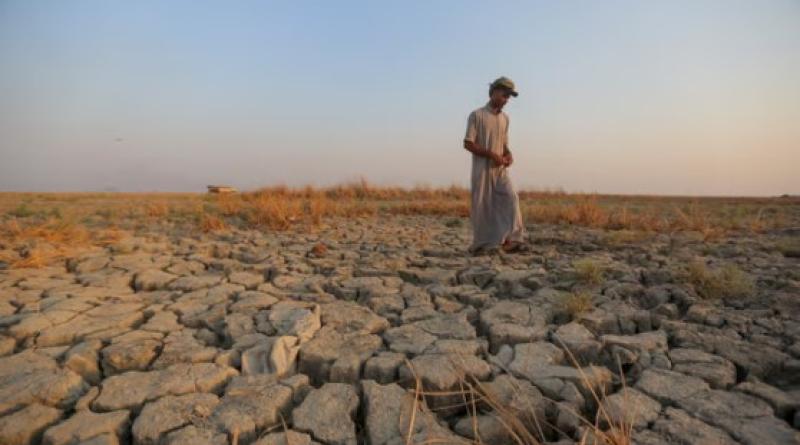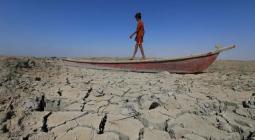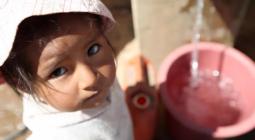Human-caused heating behind extreme droughts in Syria, Iraq and Iran, study finds

Millions of people’s lives wrecked by droughts that used to happen once every 250 years but now expected once a decade
Extreme droughts that have wrecked the lives of millions of people in Syria, Iraq and Iran since 2020 would not have happened without human-caused global heating, a study has found.
The climate crisis means such long-lasting and severe droughts are no longer rare, the analysis showed. In the Tigris-Euphrates basin, which covers large parts of Syria and Iraq, droughts of this severity happened about once every 250 years before global heating – now they are expected once a decade.
In Iran, extreme drought occurred once every 80 years in the past but now strikes every five years on average in today’s hotter world. Further global heating, driven by the burning of fossil fuels, will make these droughts even more common.
The study also found that existing vulnerability from years of war and political instability had reduced people’s ability to cope with the drought, turning it into a humanitarian disaster.
The researchers said it was vital to plan for more frequent droughts in the future.
“Our study has shown that human-caused climate change is already making life considerably harder for tens of millions of people in west Asia,” said Prof Mohammad Rahimi, at Semnan University, Iran. “And with further warming, Syria, Iraq and Iran will become even harsher places to live.”
Rana El Hajj, at the Red Cross Red Crescent climate centre, said: “While conflict itself increases vulnerability to drought by contributing to land degradation, weakened water management and deteriorating infrastructure, research also shows that climate change, in this region specifically, has acted as a threat multiplier [for conflict].”
Dr Friederike Otto, at Imperial College London, UK, said: “Droughts like this will continue to intensify until we stop burning fossil fuels. If the world does not agree to phase out fossil fuels at [UN climate summit] Cop28, everyone loses: more people will suffer from water shortages, more farmers will be displaced and many people will pay more for food at supermarkets.”
The Guardian revealed in 2022 how hundreds of scientific studies now show that human-caused global heating is driving more frequent and deadly disasters across the planet. Leading climate scientists warned in August that the “crazy” extreme weather of 2023 was just the “tip of the iceberg” compared with the even worse impacts to come.
The study was conducted by the World Weather Attribution group. The researchers used weather data and climate models to compare how droughts have changed in the region since global heating has pushed up temperatures by about 1.2C.
The scientists found that the high temperatures recorded since 2020 were “virtually impossible” without climate change and made the drought far more likely to happen. The searing temperatures increased the evaporation of the little rain that fell, resulting in the drought being classified as “extreme” on the US Drought Monitor scale. Without the climate crisis, the past three years would not have passed any threshold for drought.
The affects of the drought have been wide-ranging, causing millions to flee rural areas, soaring food prices, wildfires and air pollution and fishing rivers and lakes to dry up.
In Syria, 2 million rural people have been displaced and 12 million people – 60% of the population – were reportedly experiencing food insecurity. Almost every province of Iran has been severely affected by the drought and poor harvests have caused spikes in food prices.
Otto said: “The threat of drought is rapidly increasing in a warming world, destroying livelihoods and disrupting global food systems.
“While countries made extremely wealthy by fossil fuels can pay for adaptive measures to enjoy a comfortable standard of living in a hotter, harsher world, poorer countries reeling in the aftermath of war, cannot,. This is also true for poorer people in rich societies, highlighting again how the continued burning of fossil fuels increases inequality.”
Photograph: Anmar Khalil/AP - A fisherman walks across a dry patch of land in the marshes in Dhi Qar province, Iraq.




